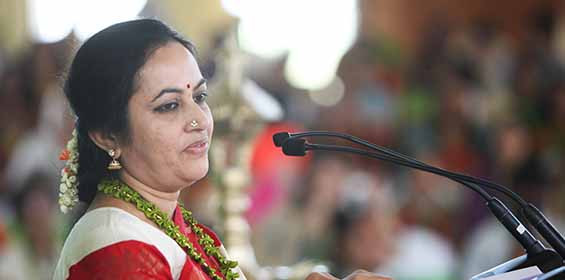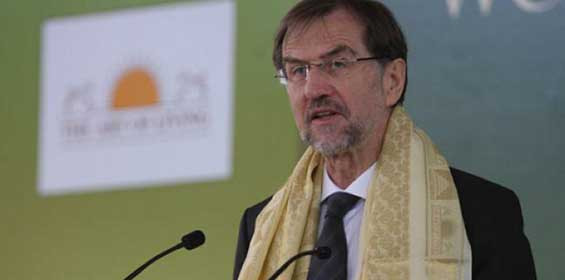
Excerpts from the Speech of The Honorable Ms. Berit Reiss-Andersen
Making a Global Connection is rather a new concept if apart from the rather spiritual concept of all human beings being equal. But in the modern world where we have a global economy, global migration, global communication through internet and other medias, any conflict in the world today may have an effect globally on the rest of the region or even the rest of the world.
For one we are forced to connect globally because we are inhabitants in the global community. We have an instrument that forces us to connect and that is the universal principle of human rights. If we take something very specific and very basic that all people are bound by and it is the universal principle of human rights and it is the Universal Declaration. And this Convention was first drafted in 1948 by many different people and traditions and today it has become common law which means that it is binding for all nations and countries to grant their citizens.
The basic right that follows from the Declaration and it is one important universal principle that is non-discriminate and it describes the rights that human beings have inherently, exactly because they are human beings. And I quote you Article 1: "All human beings are born free and equal in dignity and rights. They are endowed with reasons and conscience and to act with one another with the spirit of brotherhood". This is a very interesting concept because I told you it is the responsibility of the State to ensure the rights that it also ensures the individual human beings and challenges the reason, our thinking and our conscience and our obligation to connect in our brotherhood.
And of course it secures the rights of freedom, freedom of speech and basic rights of access to justice, the right to life, the right to security, etc which I will dwell a little bit with Artice 3 and 4 that says no one shall be held in slavery and servitude. And we thought slavery was more or less abolished and I think it is an enormous challenge to us, that when we are talking about global connection we have to think about now who do we connect to. We who are gathered in this room, we have a lot in common, we are women, we are engaged in issues, we are educated and we have a global connection.
But all the vulnerable people in the world, the people that are not visible to us because we relatively live in a very privileged position, how do we see them, and who are they? I would say that in the world today, there is that western world and in the higher middle class of the world we have the life style where we are actually dependent on slaves. They are people work for no pay, child laborers that are engaged in the garment industry, in the carpet industry, in processing industry who literally only work for shelter and food. We have a global problem of trafficking, trafficking human into domestic services, prostitution. And these are the people whom we have absolutely overlooked.
So what I would like to say to you today at this conference is that when we are talking about global connection we also have to talk about social and political issues because they are meant to be a part of actually connecting and so our challenge is to really connect with the disconnected, the people who are disconnected from society from protection. These are the people whom we really need to connect to.
Then my last reflection since this is a women’s conference, are women better than the other half of the world in facing these issues? I have to disappoint you and answer, “no”. Women are first and foremost human beings and with all the inherent rights and duties and talents that other human beings have. It has just taken such an awful long time and it is still not achieved globally. This is the position of women, that we have the same abilities, we can solve problems good or bad as anybody else, but coming together here I encourage you that you do have the right to connect with the disconnected and that we as women also see this as our duty and as our challenge.





















